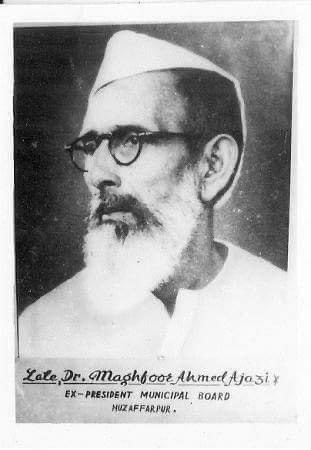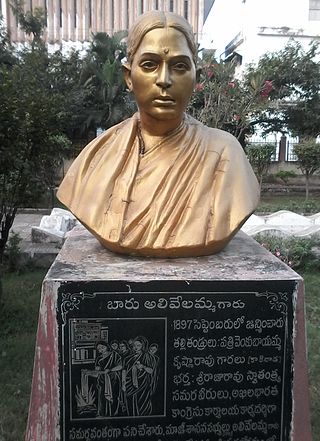Related Research Articles

The non-cooperation movement was a political campaign launched on January 4, 1921 by Mahatma Gandhi to have Indians revoke their cooperation from the British government, with the aim of persuading them to grant self-governance.

The Salt march, also known as the Salt Satyagraha, Dandi March, and the Dandi Satyagraha, was an act of nonviolent civil disobedience in colonial India, led by Mahatma Gandhi. The 24-day march lasted from 12 March 1930 to 6 April 1930 as a direct action campaign of tax resistance and nonviolent protest against the British salt monopoly. Another reason for this march was that the Civil Disobedience Movement needed a strong inauguration that would inspire more people to follow Gandhi's example. Gandhi started this march with 78 of his trusted volunteers. The march spanned 387 kilometres (240 mi), from Sabarmati Ashram to Dandi, which was called Navsari at that time. Growing numbers of Indians joined them along the way. When Gandhi broke the British Raj salt laws at 8:30 am on 6 April 1930, it sparked large-scale acts of civil disobedience against the salt laws by millions of Indians.

Tanguturi Prakasam popularly known as Prakasam Pantulu, was an Indian jurist, political leader, social reformer, and anti-colonial nationalist who served as the Prime Minister of the Madras Presidency. Prakasam subsequently became the first chief minister of the erstwhile Andhra State, created by the partition of Madras State along the linguistic lines. Prakasam was known as "Andhra Kesari" which translates to "Lion of Andhra". The Andhra Pradesh government issued G.O RT-2500 on 10 August 2014 declaring his birth anniversary a State holiday.
Gampalagudem is a town situated in the NTR district of Andhra Pradesh, India. It serves as the headquarters of the Gampalagudem mandal, which is under the administration of the Tiruvuru revenue division. The town is located on the banks of the Kattaleru river and is situated at a distance of 74 km (46 mi) from the district headquarters Vijayawada.

Kakani Venkata Ratnam was a former cabinet minister in Andhra Pradesh in India.

Sarala Devi was an Indian independence activist, feminist, social activist, politician and writer. She was the first Odia woman to join the Non-cooperation movement in 1921 and the first Odia woman delegate of the Indian National Congress. She became the first woman to be elected to the Odisha Legislative Assembly on 1 April 1936.
Kalluri Chandramouli was an Indian politician and independence activist from the state of Andhra Pradesh, South India.He held ministerial posts in three states: Madras State, Andhra State and Andhra Pradesh. Served as the Minister of Endowments and as the President of the Board of Trustees of Tirumala Tirupati Devasthanam. He renovated Srisailam and Bhadrachalam temples.

Bulusu Sambamurti was an Indian lawyer, politician and freedom-fighter, who served as the President of the Madras Legislative Council from 1937 to 1942. He was thus the first speaker of Madras presidency assembly. He was popularly known as Maharshi Bulusu Sambamurti.

Kala Venkata Rao was an Indian independence activist and politician. He served as the Minister for Revenue in the governments of the Madras Presidency and Andhra Pradesh. He also served as the Minister of Finance in the latter.
Anne Anjaiah (1905–1975) was an Indian freedom fighter and a politician from the state of Andhra Pradesh.

Dukkipati Nageswara Rao was an Indian independence movement activist from Krishna District.

Maghfoor Ahmad Ajazi was a political activist from Bihar, prominent in the Indian independence movement.
Duggirala Gopalakrishnayya, was an Indian freedom fighter and member of the Indian National Congress from the southern Indian state of Andhra Pradesh. Known by his title of Andhra Ratna (Telugu: ఆంధ్ర రత్న, translates to "Jewel of Andhra" or "Gem of Andhra." Sri Duggirala Gopalakrishnayya, Gopalakrishnayya was the first Andhra leader to become secretary of the All India Congress Committee. Sri Duggirala Gopalakrishnayya, was a very captivating poet, speaker, songwriter, philosopher, singer and an extraordinary revolutionary with a philosophy of non-violence. Sri Nadimpalli Venkata Lakshmi Narasimha Rao worked in tandem with Sri Duggirala Gopalakrishnayya. For his exemplary work and sacrifices for freedom movement in Andhra, he was fondly conferred the name 'Andhra Ratna'
Ambujammal Desikachari née Srinivasa Iyengar (1899-1983) was an Indian independence activist and women's rights activist. A Gandhian, she participated in the Civil Disobedience Movement and served as vice-president of the Tamil Nadu Congress Committee. Ambujammal was awarded the Padma Shri in 1964.

Digavalli Venkata Siva Rao, or Digavalli Śivarāvu, was a lawyer, historian and Telugu writer from Vijayawada, Andhra Pradesh. He is the author of forty-two books and some 300 articles written between 1924 and 1987. Some of his works are available in the Indian Digital Library.

K. Kumar (1894–1973) was an Indian orator, reformer and writer of the Indian pre-independence era. He was one of the earliest socio-political leaders to have brought Mahatma Gandhi's message and the spirit of the national movement to the erstwhile Travancore State.
Gangadharrao Balkrishna Deshpande also known as Lion of Karnataka, Khadi Bhageeratha of Karnataka, was an Indian activist who was the leader of the Indian independence movement against British colonial rule from Belgaum. He was the right-hand man of both Lokamanya Tilak and Mahatma Gandhi in succession. Deshpande considered Lokamanya Tilak as his Guru. Deshpande served as Chairman of Karnataka branch of All-India Spinners' Association, and the All India Village Industries Association for some years. Deshpande was largely responsible for the installation of Premier of Bombay, B. G. Kher.

Baru Alivelamma (1895–1973) was a prominent freedom fighter in India during the Indian independence movement.
Hajara Beebi Ismail was an Indian freedom fighter and social worker. She was the wife of Mohammed Ismail Saheb, who was also a freedom fighter from Tenali of Guntur district in Andhra Pradesh.

Umabai Kundapur (1891–1992) was an Indian freedom fighter from Karnataka. She founded Bhagini Mandal, a group of freedom fighters. She was the head of the women's wing of the Hindustani Seva Dal founded by N. S. Hardikar.
References
- ↑ Naidu, Ch M. (1986). Salt Satyagraha in the Coastal Andhra. Mittal Publications. p. 79. ISBN 978-0-8364-2033-3.
- ↑ మధునాపంతుల సత్యనారాయణ శాస్త్రి (1950). ఆంధ్ర రచయితలు-ప్రథమ భాగము (1806 - 1901). p. 896.
- ↑ మిక్కిలినేని రాధాకృష్ణమూర్తి (1965). ఆంధ్ర నాటకరంగ చరిత్రము. p. 330.
- ↑ S Reganl. Who Is Who Of Freedom Struggle In Andhra Pradesh Vol Two. p. 295.
- ↑ Mahotsav, Amrit. "Tilak Swaraj Fund". Azadi Ka Amrit Mahotsav, Ministry of Culture, Government of India. Retrieved 5 December 2023.
- ↑ Ragani, Sarojini (1956). Highlights Of The Freedom Movement In Andhra Pradesh. The Ministry Of Cultural Affairs, Hyderabad. pp. 69–74.
- ↑ Mahotsav, Amrit. "Tanuku Taluk Congress Meeting, October 1920". Azadi Ka Amrit Mahotsav, Ministry of Culture, Government of India. Retrieved 2 December 2023.
- ↑ Mahotsav, Amrit. "Boycott of Elections In West Godavari District". Azadi Ka Amrit Mahotsav, Ministry of Culture, Government of India. Retrieved 2 December 2023.
- ↑ Naidu, Ch M. (1 January 1986). Salt Satyagraha in the Coastal Andhra. Mittal Publications.
- ↑ Kkkotha (11 April 2010). "AU - Convocations - Honorary Degrees". Andhra University - Honorary Degrees. Retrieved 5 December 2023.
- ↑ ఆంధ్ర విశ్వవిద్యాలయం కాన్వొకేషన్ వివరాలలో కళాప్రపూర్ణ గురించి. Archived from the original on 15 September 2018. Retrieved 3 May 2023.